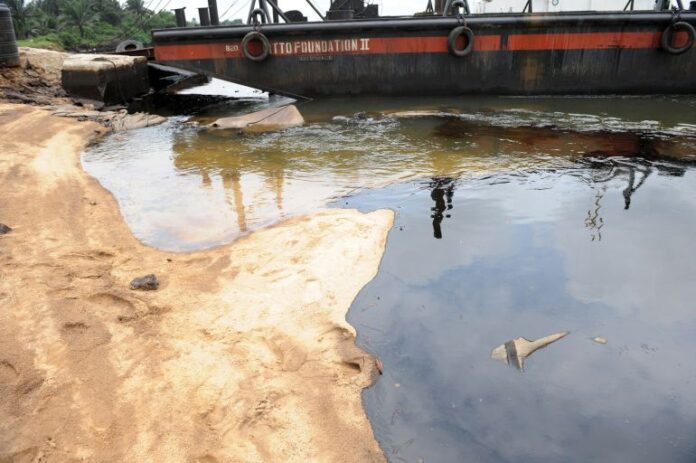The Federal Government said on Sunday that about 67.6 million barrels of crude oil have been delivered to domestic refineries since the rollout of the Direct Sale Direct Purchase (DSDP) programme.
The Nigerian Upstream Petroleum Regulatory Commission (NUPRC) disclosed that the supply, covering January to August 2024, was aimed at boosting local refining capacity and reducing dependence on imported petroleum products.
“The initiative is part of efforts to ensure adequate feedstock to domestic refineries and stabilise the downstream sector,” the commission said.
“A total of 67,657,559 barrels were delivered to local refiners between January and August this year. All refiners got that amount within the eight-month period,” Akinkuotu stated.
However, the volume supplied fell short of refiners’ demand by a wide margin. Local processors had requested 123,480,500 barrels for the first half of 2025, meaning they received 55,822,941 barrels—or about 45 per cent—less than required to meet their refining targets.
The DCSO framework, introduced under the PIA, mandates upstream producers to reserve a portion of their crude for domestic processors before exporting, with sanctions for non-compliance. The policy was designed to guarantee feedstock to local refiners and reduce reliance on imported petroleum products.
Earlier this year, the NUPRC projected that refineries such as Port Harcourt, Warri, Dangote, and others would need 770,500 barrels per day, translating to 23.8 million barrels monthly, or 123.4 million barrels for the first half of 2025.
Yet, actual deliveries have not matched these forecasts. Instead, Nigeria’s crude and condensate production climbed to 1.63 million barrels per day in August, with much of it still destined for export.
For months, refinery owners have lamented difficulties in accessing crude locally. They allege that producers prefer selling to international buyers who pay in dollars, leaving domestic refiners struggling under exchange rate pressures.
The Publicity Secretary of the Crude Oil Refiners Association of Nigeria, Eche Idoko, said in July that Nigeria’s quest for self-sufficiency in petroleum refining had been undermined by policy ambiguities and economic contradictions. He faulted the implementation of the DCSO and the Domestic Crude Refining Requirement, saying local refiners remain trapped by the “willing buyer, willing seller” pricing model
“The willing buyer, willing seller principle was meant to create competitiveness. But in practice, it disadvantages local refiners who cannot match dollar-based offers from international traders,” Idoko said.
According to him, foreign buyers’ access to hard currency makes them more attractive to upstream producers, while local refiners—hampered by currency volatility—are often priced out of the very crude they are entitled to under Nigerian law. “This market liberalisation paradoxically undermines the goal of domestic refining self-sufficiency,” he added.
Despite policy commitments, the reality is that Nigeria still exports most of its crude. Data showed that in the first quarter of 2025 alone, 82 per cent of the country’s production went abroad, even as local refiners battled shortages.
Energy analysts note that sustained crude allocations are vital for the success of recently revived and new refineries, including the Port Harcourt and Dangote plants.
Industry experts, however, caution that regular supply must be matched with transparency in pricing and accountability to deliver long-term benefits.





